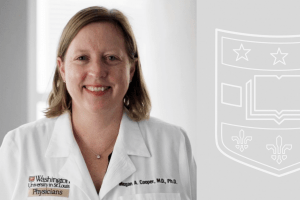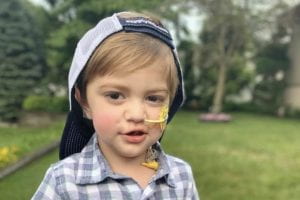Interview with Megan Cooper, MD, PhD (Links to an external site)
Megan Cooper, MD, PhD, is a pediatric rheumatologist/immunologist at St. Louis Children’s Hospital. She is the Director of Clinical Immunology at Children’s and an Associate Director of the Medical Scientist Training Program at Washington University School of Medicine. She received her MD and PhD from The Ohio State University before coming to Washington University School of Medicine in St. Louis for her pediatric residency and fellowship in pediatric rheumatology. Currently, her lab focuses on elucidating mechanisms of immune cell control with an interest in both natural killer (NK) cell activation and the molecular mechanisms of pediatric immune-mediated disease.
Scientists discover rare genetic condition that attacks kids’ immune systems (Links to an external site)
Four-year-old Joseph Anthony Vena IV died last year of a rare genetic disease that attacks children’s immune systems. The disease and the genetic mutation that causes it were identified by Megan A. Cooper, MD, PhD, an associate professor of pediatrics at Washington University School of Medicine in St. Louis, working with other researchers. Cooper, who also treats patients at St. Louis Children’s Hospital, specializes in diagnosing and treating rare genetic diseases affecting the immune system. The new discoveries have inspired an ongoing collaboration of scientists nationwide.
Meet Weston (Links to an external site)
From the moment Weston was born, he was adored by his parents, Emily and Shane. However, when Weston was just 7-months-old, things began to spiral out of control. Within a three week span, Weston went from a healthy, symptom free child to getting a diagnosis that would change his life.
COVID-19 study looks at genetics of healthy people who develop severe illness (Links to an external site)
Washington University School of Medicine in St. Louis is one of more than 30 genome sequencing hubs worldwide participating in a study to sequence the DNA of young, healthy adults and children who develop severe COVID-19 despite having no underlying medical problems. The researchers also will study people who never become infected despite repeated exposures to coronavirus. Knowledge gained from understanding COVID-19’s extremes could lead to new therapeutic strategies for the illness.
Meet Parker (Links to an external site)
On the outside, Parker looks like any other kid. However, common illnesses can quickly turn very serious for him. There are less than 70 cases of his disease documented in the world. Without access to St. Louis Children’s Hospital and the Children’s Discovery Institute, it is unlikely Parker’s family would have been able to get any answers.




